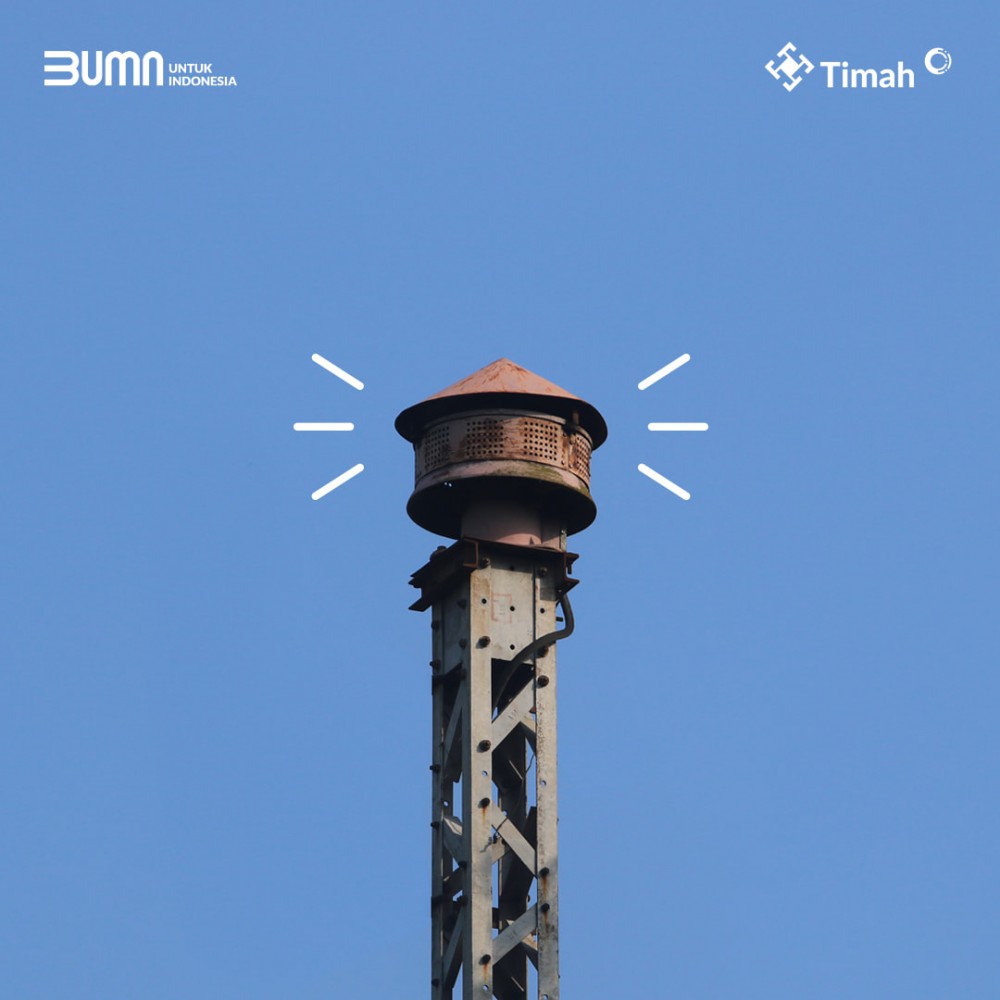
The Siung, emitted from large speakers mounted on a tower at PT Timah Tbk’s headquarters, rings out at Iftar (the breaking of the fast), during Sahur (pre-dawn meal), and at the start of Imsak (the fasting period before dawn prayer).
For decades, the Siung has served as an iconic time signal for the people of Pangkalpinang, marking the moment to break their fast. On regular days, the Siung is a timekeeper for PT Timah employees, signaling work start and end times.
PT Timah Tbk, which has long thrived alongside the people of the Bangka Belitung Islands, has become an inseparable part of Ramadan traditions in the region—its Siung sound is a hallmark of the holy month.
The term "Siung" in the Malay language refers to a buzzing or humming sound, similar to the noise of bees flying through the silence.
Initially, the Siung served as a work time indicator for tin miners, marking the start of shifts, break times, and the end of the workday. Before that, time signals were given using bells.
Over time, the function of the Siung expanded beyond the mining sector, and during Ramadan, it became a crucial timekeeper for the community. For pre-dawn meals (Sahur): The Siung wakes up families, especially mothers, to prepare food. For breaking the fast (Iftar): Children eagerly wait for the Siung, as it signals the moment they can finally eat after a day of fasting.
"For the people of Bangka, breaking the fast doesn’t feel complete without hearing the Siung. It was more reliable than watching the sunset, as watches and clocks were still rare at that time," said Dato' Akhmad Elvian, a recipient of the Indonesian Cultural Award.
Today, not only PT Timah sounds the Siung, but private fire departments and several mosques also carry on the tradition.
Elvian hopes that the Siung sound remains a lasting reminder of the rich history of tin mining in Bangka, a heritage that shaped the island’s civilization.
"As time moves from Ramadan to Syawal and history repeats itself, the Siung will remain a lasting memory of the fasting tradition in Bangka. It would be heartbreaking if, one day, the Siung were silenced forever amid the rise of digital technology. Hopefully, tonight’s Maghrib Siung will not be the last one we hear," Elvian reflected.
The Siung tradition is not exclusive to Pangkalpinang; it resounds across PT Timah’s operational areas, including Mentok, Belitung, and East Belitung. To this day, PT Timah continues to sound the Siung as a cherished Ramadan time signal for the community. (*)